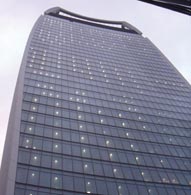Every sector, although not every company, identifies cyber as a principal risk. If you company has not, why not? asks an audit firm.
Few FTSE 100 company boards disclose having a director with specialist technology or cyber security experience, according to an analysis of annual reports by Deloitte, the business advisory firm. This is despite cyber risk being identified as a principal risk by the vast majority of them. Of the type of cyber attacks disclosed as a threat, unauthorised access to systems ranked most common (19pc), followed by hacking (13pc) and malware (13pc). Distributed denial of service (DDoS) attacks were only mentioned by five companies, despite Deloitte predictions that we could see ten million DDoS incidents in 2017.
Phill Everson, head of cyber risk services, Deloitte UK said: “In light of high profile breaches, companies understand more than ever that the event of a cyber attack is not a question of if, but when, by whom and by what degree. The vast majority of FTSE 100 reports acknowledge the principal risk, but our analysis shows there were wide variations in the disclosure of cyber risk management and mitigation strategies. 11% of the reports mentioned the creation of a new role or body to take overall accountability for cyber risk, demonstrating the increased focus on cyber risk in organisations. However, there is also a growing expectation for board involvement in cyber oversight, as evidenced by the 10pc of companies that delivered cyber related training to their board. With the pervasive nature of technology and the focus on cyber risk it is alarming that only one in twenty boards disclose that they currently have board members with specialist technology or cyber background and only a handful more disclose that they have advisors to the board with this experience. This is not sustainable, but also reinforces the importance of disclosing such information to investors.”
More than half of companies mentioned cyber contingency, crisis management or disaster recovery plans in their annual report. Of these, however, only 58pc disclosed that these plans had been simulated in test scenarios over the year. Everson said that testing is vital, as the nature of cyber attacks is developing rapidly, and organisations need to understand their resilience and adapt their defences.
He added: “The most commonly disclosed potential impacts of cyber breaches were business disruption (68pc), reputational damage (58pc), and data loss (45pc). Clearly, the more frequently and stringently mitigation plans are tested, the more resilient and responsive the company. Interestingly, very few reports identified employee action as one of their cyber security threats. Company employees are, knowingly or unintentionally, the most common cause of a cyber breach.”
And William Touche, leader of Deloitte’s centre for corporate governance, at Deloitte UK said: “Whilst the digitally connected world of course presents threats, it also presents huge opportunities for those nimble enough to embrace them. The opportunity is not just about new business models, but also about the increased engagement with customers and suppliers, enabling better information exchange, increased efficiency and greater value.
“The potential damage of cyber attacks is a significant threat so annual report disclosure of cyber risk, mitigations such as planning, training and testing and even cyber breaches within the annual report is important information for shareholders as it highlights the risks and lets them know how seriously companies are taking it. It also demonstrates a company’s understanding of the cyber threats that they face. Our survey revealed a wide range in the quality of disclosure made by companies. Some do this very well, but the majority could make improvements.”
Comment
John Madelin, CEO at cybersecurity firm RelianceACSN, says: “The Deloitte findings really emphasize the fact that organisations know cybersecurity is an issue, but don’t know how to tackle it. At board level organisations need to have someone who understands cybersecurity and champions it from the top. There’s a worrying attitude that when it comes to cybercrime, it’s a case of when not if you’ll be attacked and businesses are failing to address the problem. The recent spate of high-profile breaches highlights that businesses are on the back-foot and the trend is to throw technology at the problem, rather than get basic network protection right. If more organisations focused on securing their critical assets, rather than battling to secure all we’d be seeing far less of these headlines in the news.”










